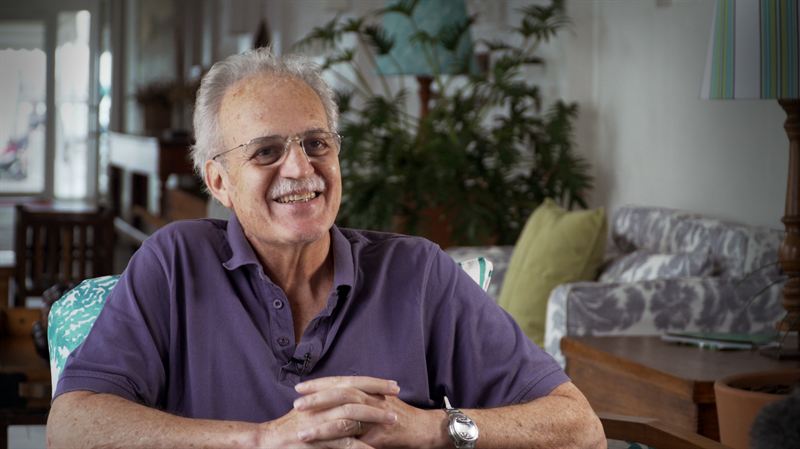Guardian of the Amazon receives the Volvo Environment Prize

Brazilian scientist Professor Carlos Nobre is the Volvo Environment Prize laureate for 2016. He gains the award for his pioneering efforts in the understanding and protection of the Amazon, one of the Earth´s most important ecosystems.
The Amazon rainforests are among the richest regions on earth in terms of biodiversity. Between 10 and 15 percent of all the species found on land live there and the woodlands store between 100 - 120 billion tonnes of carbon. The Amazon rain generates about 15 percent of all fresh water that flows into the world’s oceans. So the Amazon has a significant impact on biodiversity and climate.
- Carlos Nobre has played a pre-eminent role over several decades in research into the Amazon rainforest, including cutting edge research in Earth system science, says the jury of the Volvo Environment Prize in its motivation for the 2016 award.
For years there has been grave concern about the deforestation of the Amazon and the conversion of rainforests into pasture for livestock or for large-scale cultivation of crops. But development has slowed, and deforestation has fallen by nearly 80 percent over the last 10 years. New ventures in cattle farming or agriculture in rainforest areas have dropped considerably.
- It is a combination of new legislation, tougher regulations and law enforcement, but the reduced profitability of exploitation has also contributed to the change, says Carlos Nobre.
He warns that logging is still at a high level, and may transform areas of rainforest into more savanna-like conditions, seriously affecting the role that the Amazon has in the global ecosystem. If warming in the Amazon exceeds 4°C or more, or if more than 40 % of the forest area is clear cut, a tipping point could be reached and forest dieback may become irreversible.
However, the current trend is hopeful, he says, and highlights a new role for the Amazon.
- It is perhaps the last place you would expect an industrial revolution to take place, but this could very well be the future for the largest tropical forest in the world.
Tapping the Amazon’s current biodiversity - countless living organisms, plants, animals and insects – using the latest technological advances can lead to a new industrial revolution according to Carlos Nobre.
- The world is undergoing a high-speed transformation driven by innovations in artificial intelligence, robotics, nanotechnology, synthetic biology, DNA editing and bio mimicry to name but a few. By preserving the rich and vast resources of the Amazon and combining them with this new technology, we can actually see a new future for the Amazon and its inhabitants, says Carlos Nobre.
- Science is making rapid progress in understanding how things are created in nature, how they behave and function, and processes that took million of years to evolve. In the medium and long term, we can envision a vast number of innovations arising from the tropical forest, in Brazil and elsewhere.
Besides his long academic career Professor Carlos Nobre in 2011 was appointed Secretary for Policy and Research at the Ministry of Science and Technology in Brazil. In 2013 the UN Secretary General Ban Ki Moon appointed Carlos Nobre to his newly created Scientific Advisory Board.
For more information about the Volvo Environment Prize and this year’s winner, please contact the chairman of the jury, Professor Will Steffen, Fenner School of Environment and Society, Australian National University, e-mail: will.steffen@anu.edu.au Phone: +61 2 6125 4588
The Volvo Environment Prize was founded in 1988 and has become one of the world’s most prestigious environmental prizes. It is awarded annually to people who have made outstanding scientific discoveries within the area of the environment and sustainable development. The prize consists of a diploma, a glass sculpture and a cash sum of SEK 1.5 million and will be presented at a ceremony in Stockholm on 30 November 2016.
For more information about the 2016 laureate and the Volvo Environment Prize: www.environment-prize.com
For more stories from the Volvo Group, please visit http://www.volvogroup.com/press.
The Volvo Group is one of the world’s leading manufacturers of trucks, buses, construction equipment and marine and industrial engines. The Group also provides complete solutions for financing and service. The Volvo Group, which employs about 100,000 people, has production facilities in 18 countries and sells its products in more than 190 markets. In 2015 the Volvo Group’s sales amounted to about SEK 313 billion (EUR 33,4 billion). The Volvo Group is a publicly-held company headquartered in Göteborg, Sweden. Volvo shares are listed on Nasdaq Stockholm. For more information, please visit www.volvogroup.com.



